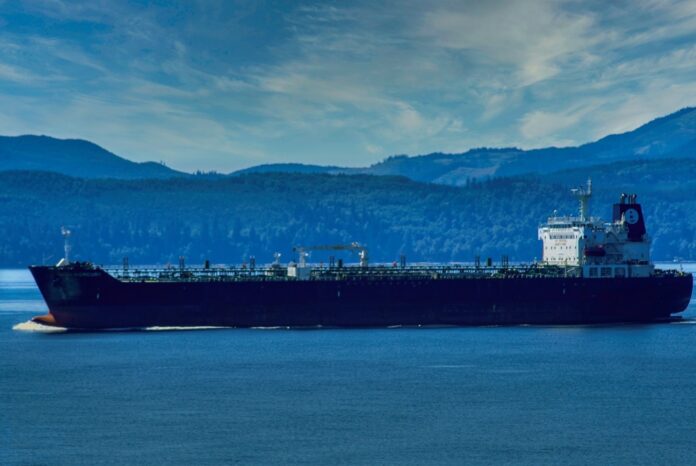Tankers are helping the country avoid sanctions imposed by the U.S.
New satellite images are the latest evidence that Russia is continuing to produce and export liquefied natural gas (LNG) and crude oil in defiance of Western sanctions, relying on a “dark fleet” of tankers that circumvent surveillance.
The 137,200-cbm “Asya Energy” (built in 2002) began transmitting a false tracking signal in the Barents Sea on Aug. 8 “allowing it to leave the area undetected, data intelligence firm Kpler reported. The so-called spoofing conceals a vessel’s actual position,” according to gCaptain.
An Aug. 10 satellite image shows the ship docked outside Russia’s Arctic LNG 2 facility, which has been sanctioned by the U.S., gCaptain says. An Aug. 1 satellite image shows another ship docked at the site, and flares indicating that the facility is functioning, gCaptian says. Both ships are flagged in Palau and managed by Ocean Speedstar Solutions in India.
Reports suggest Moscow has maintained—if not increased—its exports of LNG and crude oil to international markets, despite strict sanctions put in place to limit Russia’s energy exports in response to the ongoing conflict in Ukraine.
An August report by the KSE Institute, part of the Kyiv School of Economics “identified 74 new shadow tankers for the transport of crude oil,” which is more than the 49 tankers that have been sanctioned.
Sailing around sanctions
While the goal of the sanctions imposed by the United States and its allies is to shut off vital funding sources for Russia’s military operations, Russian vessels have utilized diverse techniques to avoid detection and sustain the profitable liquefied natural gas trade.
In late May, Eurasia News Now reported that “the European Union and NATO have expressed concern over the potential for energy manipulation and the destabilization of global energy markets,” due to the suspected emergence of the Russian “dark shadow fleet.”
Russia’s largest LNG producer Novatek had halted operations at its Arctic LNG 2 project due to sanctions and a lack of gas tankers, Reuters reported in April.
But Russia reportedly continued developing a mechanism to deliver its oil and gas products through a “dark fleet” of tankers, many of which have changed flags to non-sanctioned Western nations. Due to its fleet’s lax regulations, Russia has been able to continue exporting essential energy to Asia, especially China and India.
Analysts caution that the tenacity of Russia’s LNG exports may erode the impact of Western sanctions, permitting Moscow to continue its military activities in Ukraine while maintaining a vital position in the world energy market.



